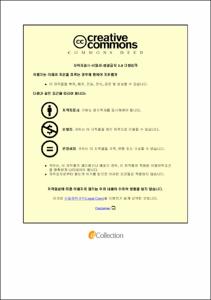한국 중소기업의 혁신활동 결정요인
- Alternative Title
- THE DETERMINANTS OF INNOVATIVE ACTIVITIES IN KORAEN SMES
- Abstract
- Understanding key drivers for firm's innovation is crucial to facilitate related activities within the company, and thus boosts that company's performance. It is obvious that collective innovation activities of all companies finally improve the industrial standing of that country. Due to this substantial impact of corporate innovations, many researches have been conducted to identify the determinants of innovation activities, but most of such conventional researches are largely relying on the survey of questionnaires, which show some limitations on considering the effects of qualitative factors such as CEO's knowledge level on technology, corporate technicians’degree of proficiency. And furthermore, there are large discrepancies in firms’self-assessment as to what they consider to be an innovation activity and what they consider to be R&D spending, specifically related to the expertise of those filling out the survey. Self-assessment of innovations often leads to a different judgement about what innovation is compared to the perception of other stake holders, which is empirically supported by several studies.
In this study, authors examine the determinants of firm's innovative activities while considering such qualitative factors together with the traditional determinants using dataset from KOTEC(Korea Technology Finance Corporation). The technology rating system of KOTEC classifies and reports these kinds of data together with firm's innovation activities. KOTEC's qualitative data are created by industry experts while assessing the amount of financing for that firm, and accumulated within KOTEC's database together with the other quantitative data.
Multiple regression analysis shows that CEO's level of knowledge on technology, tech-employee's proficiency, firm age, firm size, net profit and export are significant factors regarding innovative activities in manufacturing firms. In case of KIS(Knowledge Intensive Service) firms, their age and size are identified as significant factors for innovative activities and this study also shows that there are significant differences in the determinants of innovative activities between the manufacturing firms and KIS firms, and a wider study including qualitative factors is needed to better understand the nature of innovative activities.
- Issued Date
- 2017
- Awarded Date
- 2017. 8
- Type
- Dissertation
- Publisher
- 부경대학교
- Alternative Author(s)
- Lee Jae Pil
- Affiliation
- 부경대학교 대학원
- Department
- 대학원 기술경영협동과정
- Advisor
- 김민수
- Table Of Contents
- 제1장 서론 1
1절 연구의 배경 및 목적 1
제2절 연구의 범위 및 구성 3
제2장 기업 혁신활동의 유형과 결정요인 선행연구 4
제1절 혁신의 유형 4
제2절 혁신의 결정요인 13
제3장 혁신활동 조사와 제약요인 35
제1절 CIS(Community Innovation Surveys) 35
제2절 CIS의 제약 40
제3절 KIS(Korea Innovation Surveys) 43
제4절 기술보증기금의 혁신활동 조사 51
제4장 지식서비스산업 혁신활동의 주요 특징 58
제1절 지식서비스산업 정의 58
제2절 중요성 69
제3절 서비스 혁신의 특징 선행연구 78
제5장 제조기업과 지식서비스기업의 혁신 결정요인 비교분석 89
제1절 자료 89
제2절 분석방법 94
제3절 분석결과 101
제6장 지식서비스기업의 혁신 결정요인 추가 탐색 109
제1절 필요성 109
제2절 표본의 추출 110
제3절 새로운 혁신 결정요인 탐색 132
제7장 결론 140
제1절 연구의 요약 및 시사점 140
제2절 연구의 한계점 및 향후연구 방향 142
참 고 문 헌 143
- Degree
- Doctor
- Files in This Item:
-
-
Download
 한국 중소기업의 혁신활동 결정요인.pdf
기타 데이터 / 4.89 MB / Adobe PDF
한국 중소기업의 혁신활동 결정요인.pdf
기타 데이터 / 4.89 MB / Adobe PDF
-
Items in Repository are protected by copyright, with all rights reserved, unless otherwise indicated.